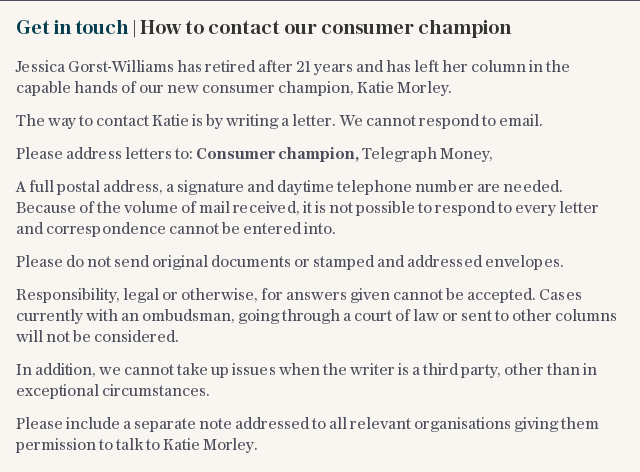'Water leak made our rented flats uninhabitable, and it took two years to get £44k insurance payout'

This is about a claim with Allianz, which has resulted from a water leak.
A tenant of one of our four flats unfortunately didn’t report the incident for two weeks. When the tenant from Flat A on the ground floor came home from hospital after a longish stay, he told us that his flat had become uninhabitable as a result of the leak from Flat D upstairs.
I reported this to my broker and a claim was made against my insurance policy. There followed a lot of to-ing and fro-ing. Loss of rent was agreed in respect of Flat A, but in the meantime we had evicted the tenant in Flat D.
Because a tenancy agreement was not in place by the time we put in the claim, the insurer said it was not covered. An interim payment for Flat A was agreed for a period starting nearly three months after the incident and lasting until last month. I am still awaiting this.
However, the property still cannot be let and there is no sign of any repairs taking place. Nearly 12 months since the disaster, I see no end in sight. This is now affecting my health and I am hoping you will intercede to bring my claim to a satisfactory conclusion.
SH, North East England
The underwriters did confirm that the risk may have been accepted. However, they also pointed to policy restrictions under the “unoccupied buildings” clause. This clause stipulates that unoccupied properties must be inspected thoroughly internally and externally at least weekly and a record maintained of such inspections.
You and your family run a separate business in the building the flats are in. You say this meant that you were able to keep on eye on the flats, as far as was possible, nearly every day. However, this was not easy.

Flat B was unoccupied but the lock on the door had been badly vandalised. You were able to access it only after the police broke in, a long time after the damage to the door occurred. In addition, the tenant of Flat D had been denying you entry.
The claims investigator took the view that, had Flat B been occupied or frequently inspected, the leak would have been found sooner and the damage and loss significantly reduced.
As for how long everything took to process, Allianz said there were some delays with your representative and then some lack of communication between the various parties involved. You believed that a period of rental loss for Flat A had been agreed.
However, after I spoke to the individual dealing with your claim at Allianz, he reported that he had not until then been made aware that you were challenging for this. He then received an interim report from the loss adjuster requesting £318 for an electrical safety check and £3,685 for loss of rent.
Regarding the flat where the incident had started, the insurer had said the flat was empty at the time. I pointed out that the eviction had occurred over two weeks after the flooding, not before.
It now undertook that, after all, the rents for Flat D as well as Flat A would all be covered. An initial date was agreed three weeks later for stripping out the property. The property had to be dried before the completion of further building works.
This involved a contractor installing several industrial dehumidifiers. They were on for 24 hours a day and took about six weeks to do the job. A quote for refurbishment was acquired from the loss adjuster and then approved.

After that, though, the start date was delayed. Thieves then broke in and stole the copper water tank from Flat D. The thieves severed a pipe on the other side of the valve that turned the water off. Water escaped, soaking the three flats again. The drying process had to be gone through again.
After a lot of coming and going this was all agreed on, but by then the temperature in the property was only 4C and the machines did not work effectively unless it was 10C. Heating had to be arranged.
It was more than four months from the latest incident before the building was certified dry. By now the various council tax charges were hitting hard. Allianz said: “We worked with Mrs H’s loss assessor to try to bring this matter to a conclusion and maintained a weekly review of the file. We are sorry for the time taken to settle the claim, but the complexity involved meant it would take some time to finally resolve.
“We will conduct a thorough internal review of the way this claim was managed to see if lessons can be learnt.”
All this has taken two years and you are still dealing with some snagging issues before renting the properties out again. Allianz has paid £16,383 for loss of rent and £28,432 for the cost of reinstatement. This came to £44,815 in all.
You say you couldn’t have done without my help and support. This case does in the end illustrate how crucial it is to have insurance in place. The incidents would have involved you in so much more hassle and expense had you not done so.

 Yahoo Finance
Yahoo Finance 